
About Noida International University:
Noida International University (NIU): A Hub of Excellence in Multidisciplinary Education Established under U.P. Legislature Act No. 27 of 2010 and recognized under Section 2(f) of the UGC Act, 1956, Noida International University (NIU) is a world-class institution sponsored by the Maruti Educational Trust. Strategically located near the Yamuna Expressway in Gautam Budh Nagar, Greater Noida, NIU offers a diverse range of programs through its 12 schools, covering fields such as Engineering, Management, Law, Medical Sciences, Nursing, Social Sciences, Pharmacy, Fine Arts, Education, Sciences & Allied Sciences. With students from over 54 nations, NIU stands as a global educational destination. The university has gained widespread recognition for its academic excellence, achieving an A+ Grade in the first cycle of NAAC accreditation with a remarkable score of 3.44 out of 4, making it the highest-rated private state university in India. This prestigious honor was conferred by NAAC, an autonomous institution under the UGC, Ministry of Education, Government of India.
The NIU campus is renowned for its green, pollution-free environment, world-class infrastructure, advanced learning facilities, and vibrant student life. With a focus on health, fitness, and a safe learning atmosphere, the university ensures a holistic educational experience. At NIU, the vision is to transform lives through knowledge, collaboration, and innovation. The university fosters a culture of research, entrepreneurship, creativity, nurturing talent, and equipping students with the skills to excel both academically and professionally. With a distinguished faculty from prestigious institutions, eminent academic leaders, and highly experienced professionals, NIU prepares students to become socially responsible global citizens.
Noida International Institute of Medical Sciences (NIIMS): A Centre of Excellence in Medical Education
NIU is also home to the Noida International Institute of Medical Sciences (NIIMS), a 750+ bedded hospital and medical college dedicated to excellence in medical education and healthcare. NIIMS follows a pragmatic, hands-on approach to learning, ensuring students gain in-depth knowledge and practical experience in the field of medicine.
Commitment to Governance, Research, and Multidisciplinary Learning
NIU follows principles of participatory governance, ensuring that decision-making aligns with its vision, mission, and strategic objectives. The university’s quality policies and core values guide its long-term goals, institutional priorities, and strategic actions. Among its distinguished schools, the School of Liberal Arts explores various dimensions of human society through humanities and social sciences, fostering critical thinking, creativity, aesthetics, and life skills philosophy. It encourages students to view the world through diverse perspectives, shaping them into well-rounded individuals and professionals.
The School of Journalism and Mass Communication and the School of Law and Legal Affairs further strengthen NIU’s academic landscape, offering rigorous training in media, law, and related disciplines. With its commitment to excellence, interdisciplinary education, and global engagement, Noida International University continues to be a leading institution shaping the future of education and research.
About the Conference
The International Conference on “Multidisciplinary Approaches to Humanities & Social Sciences” aims to bring together scholars, researchers, and practitioners to explore innovative intersections across disciplinary boundaries. This conference serves as a dynamic platform for dialogue on diverse and pressing themes, including Indian Knowledge System, Global Relations, Governance, Policy, and Political Dynamics, Geographical Innovations, Revisiting Indian History and Culture, Contemporary Sociological Imagination, Transdisciplinary Dialogues in Literature and Literary Discourse, Communication and Language Studies; Contemporary Issues in Mental Health and Well-being, Law, Gender, Human Rights, and Teacher Education.
By convening experts from various fields, the conference fosters the exchange of ideas, co-creation of knowledge, and development of innovative methodologies that redefine humanities and social science scholarship. Through these interdisciplinary discussions, participants will contribute to shaping a new paradigm of research, collaboration, and knowledge integration, the one that advances inclusivity, equity, and sustainability.
Beyond gaining fresh insights and scholarly advancements, attendees will become part of a vibrant community of thought leaders dedicated to driving meaningful change and making a positive impact on the world.
Objectives
This conference creates a global platform for cross-disciplinary exchange in humanities and social sciences, examining multipolar world dynamics, governance perspectives, and Indigenous Knowledge Systems. It fosters conversations on geography, Indian history, culture, sociology, literature, and communication while addressing mental health, law, gender, and human rights through multidisciplinary approaches. The initiative aims to build collaborative networks, develop integrated methodologies, publish quality research, and translate findings into actionable policies that address contemporary societal challenges.
Conference Tracks
- Cultural & Traditional Influence of IKS on Society & Economy
- Indian Philosophy: Leadership and Communication
- Six Schools of Indian Philosophy (Shatdarshan)
- IKS & Sustainable Development
- Health, Experiential Practices, and IKS
- Eco-Criticism and Indigenous Wisdom in Social Sciences
- Decolonizing the Literary Canon: Challenging Dominant Perspectives
- Ancient Indian Communication Ethics in Indian Knowledge Systems
- History: From the Stone Age to the Digital Era
- Intellectual and Religious Traditions
- Bhakti and Sufism
- Economy, Urbanisation and Social Transformation
- Cultural Interactions and Indian Culture in the Global Context
- Colonialism, Nationalism, and Postcolonial Transitions
- Scientific Innovations Throughout Indian History
- Performing Arts and Craft Traditions
- Food, Health, Medicine, and Cultural Practices
- Decentralization and Local Governance
- Public Policy Formulation and Implementation
- E-Governance and Digital Transformation
- Electoral Systems and Political Representation
- Administrative Reforms and Bureaucratic Efficiency
- Ethics, Accountability, and Transparency in Governance
- Crisis Management and Political Stability
- Role of Civil Society and Citizen Engagement
- Comparative Political Systems and Institutional Designs
- Public Sector Innovation and Sustainable Development
- Social Inequality and Stratification
- Globalization, Migration, and Transnationalism
- Sanitation, Public Health, and Social Development
- Environmental Sociology and Climate Change
- Urbanization and Rural Transformation
- Sociology of Education and Knowledge Production
- Inclusive Education for Sustainable Development
- Sports, Society, and Social Change
- English Literature: From the Classical to the Postmodern Era
- Trauma, Memory, and Mental Health in Fiction
- Historical Fiction and National Narratives
- Intersections of Literature and Philosophy
- Eco-Criticism and Environmental Humanities in Literary Studies
- Literature and the Performing Arts
- Technology and Literary Studies in Digital Humanities
- Mythology, Folklore, and Religious Narratives in Global Literature
- Translation and Cultural Bridge-Building Through Literature
- Dharamashastras to Uniform Civil Code: Evolution over the years
- Laws in the Age of Artificial Intelligence
- Legal Reforms for Justice and Social Equity
- Intolerance & Family Laws
- The Legality of Legal Frameworks (Pre & Post Pandemic)
- Intellectual Property in a Globalized World – Past & Present
- Civil Rights and Anti-Discrimination Laws in Pre-Independence India
- Gender-Based Violence and Cultural- Legal Responses
- The Impact of Social Media on Legal Proceedings
- Dispute Resolution Mechanisms and Insights from Indian Nyaya-Bodh
- The Rise of New Powers and the Decline of Western Dominance
- Challenges to Multilateral Institutions (e.g., UN, WTO, IMF) in a Fragmented World
- The Role of Middle Powers and Emerging Economies in Global Governance
- The Growing Influence of Regional Organizations (e.g., EU, ASEAN, African Union)
- Multipolarity on Global Security, Trade, and Diplomacy
- Strategies for fostering Stability and Cooperation in the Era of Shifting Alliances
- Bridging Developed and Developing Nations in Global Institutions
- Regionalism vs. Globalism: Competing Visions of International Order
- Sustainable Natural Resource Management
- Geomorphology and Landscape Dynamics
- Climate Change and Its Socio- Environmental Impact
- Demography, Society, and Culture
- Urbanization: Trends, Impacts, and Challenges
- Agricultural Sustainability and Rural Development
- Changes in Land Use Patterns and Developmental Issues
- Disaster Management: Risk Reduction and Resilience
- Cultural Landscapes and Sustainable Development
- Geo-Spatial Techniques & Applied Geographical Research
- Effective Communication in Multicultural Contexts
- Crisis Communication Strategies
- Intersections of Spoken Language, Body Language, and Visual Elements in Communication
- Visual Communication in Social Media: Text, Images, Sound, and Gesture
- Emotion and Language in Communication
- Role of Technology in Language Learning and Teaching (Mobile Apps & Gamification)
- Context, Meaning, and Cultural Norms in Communication
- Cognitive Linguistics and Thought Processes
- Language Variation and Linguistic Diversity Across Cultures
- Mental Health and Well-Being
- Social Identity Crisis
- Educational Psychology and Learning Strategies
- Impact of Spirituality on Mindset
- Social Media and Its Influence on Lifestyle
- The Role of Music, Art, and Colour in Psychotherapy
- Psychological Perspectives on Anxiety, Stress, and Depression
- Humanitarian Concerns Across Cultures
- Religious, Regional, and Racial Discrimination in Society
- Human Rights and Minority Issues
- Gender Discrimination, Stereotypes, and Biases
- Legal Frameworks on Gender Discrimination
- Policies and Implementations for Gender Equality
- Third Gender: Social Acceptance and Challenges
- Gender Representation in Media and Popular Culture
- Curriculum Design and Pedagogical Strategies
- The Role of Civil Society in Higher Education Policy Making
- Upskilling for the Future: Education in the Digital Age
- The Intersection of Industry 4.0 and Education Systems
- Diversity, Equity, and Inclusion in Educational Institutions
- Early Childhood Education: Building Strong Foundations
- Reimagining Classrooms: Smart Learning Environments
- STEM Meets STEAM: Integrating the Arts into Education
- Mathematical Creativity: Predictors, Processes, and Potentials
- Ethical Business Practices: CSR, Leadership, and Social Entrepreneurship
- Tech-Driven Transformation: AI, Automation, and the Digital Economy
- Sustainable Growth Strategies: Green Economy and ESG Models
- Behavior and Culture in Business: Emotional Intelligence & Work-Life Balance
- Policy, Governance, and Global Markets: Trade & Public-Private Partnerships
- The Digital Revolution and Its Impact on Mass Communication
- Combating Misinformation: Media’s Role in Building Credibility
- Promoting Diversity and Equity in Media Representation
- The Rise of Converged Media and Multi- Platform Narratives
- Podcasts and Audio Media: Redefining Storytelling
- Media as a Lifeline: Communicating Health and Wellness in Crisis
- Ethics, Accountability, and Responsibility in Modern Media
- Cinema’s Evolution: From Reels to Real
- Films as Cultural Narratives and Societal Reflections
- Technology’s Role in the Transformation of Filmmaking
Call for Papers and Submission Guidelines
Authors are invited to submit their full research papers for the conference, ensuring strict adherence to the submission guidelines provided.
Responsibilities of Authors
Authors are expected to present original research that has not been published elsewhere. All data, methods, and findings should be accurately reported, without fabrication, falsification, or inappropriate data manipulation. Authors must properly acknowledge the contributions of others, including citing relevant work. Plagiarism, in any form, is unacceptable and will result in the rejection of the submitted paper. Furthermore, authors should disclose any potential conflicts of interest that might influence the results or interpretation of their work. Submitting the same manuscript to multiple conferences or journals simultaneously is considered unethical and is strictly prohibited.
Plagiarism Prevention
To maintain the integrity of the conference proceedings, all submitted manuscripts will be screened for plagiarism using specialized detection software. Manuscripts found to have a similarity index exceeding 10% will be scrutinized, and authors may be asked to revise or provide explanations for the overlaps. Instances of confirmed plagiarism will lead to the rejection of the manuscript and may result in further disciplinary actions.
Responsibilities of the Editorial Board
The editorial board is responsible for ensuring the integrity of the publication process. They should make decisions on submissions based solely on the academic merit of the work and its relevance to the conference’s scope. The editorial board must ensure that the review process is conducted fairly, confidentially, and without bias. They are also responsible for identifying and addressing any ethical issues that may arise, such as suspected plagiarism, data manipulation, or conflicts of interest. The board is committed to maintaining transparency throughout the publication process and will take appropriate action in cases of malpractice, which may include rejecting manuscripts, issuing retractions, or reporting misconduct to the authors’ institutions.
- Papers must be formatted using the prescribed Taylor & Francis template, available on the conference website.
- APA citation style should be followed.
- Manuscripts should be written in 10-point Times New Roman font with 1.0 line spacing.
- The full paper should be between 2,500 to 3,000 words, including citations, references, and bibliography.
- The document must not exceed six pages maximum, incorporating figures, graphs, and images etc.
- Full length papers are to be submitted in MS-Word File on the mentioned E-mail ID consisting the Number and the Full Name of the track mentioned in the subject line.
- The papers should include the clear mention of the names of the Author/s and their affiliations.
- Abstract must not be more than 200 words inclusive in the word count of the full paper.
- Each paper may have a maximum of three authors.
Publication Opportunity
Accepted and presented papers will be considered for publication in Scopus Indexed Taylor & Francis Conference Proceedings, (subjected to Scopus protocols and check). Each accepted paper will receive a single certificate of participation, regardless of the number of authors. Additional individual certificates can be issued upon request for a fee of Rs. 1000 per certificate.
- E-MAIL- mdahss2025@niu.edu.in
- MODE OF THE CONFERENCE- Hybrid Mode (Online/Offline)
Important Dates
| OLD DATE | NEW DATE | |
| Date Extended | 05-May-25 | 12-May-25 |
| Deadline of Full Paper Submission | 25-Apr-25 | 15-May-25 |
| Date of Notification of Acceptance | 05-May-25 | 16 May 2025 |
| Early Bird Registration | 10-May-25 | 20 May 2025 |
| Late Registration | 20 May 2025 | 7 June-25 |
| Date of Conference: | 17-18 June 2025 |
Payment Details
After the submission of the full paper, the authors will receive an acceptance mail along with the Registration and Payment Link. The final publication is subject to the norms of Taylor and Francis (like 10% plagiarism policy, etc.). You are requested to adhere to the mentioned dates and the guidelines.
| Early Bird Registration till 20th May | Late Registration after 7 June -25 | ||
| Publication Charges | Foreign Author | 150 USD | 200 USD |
| Industry Professionals | Rs.12000/- | Rs.15000/- | |
| Academicians and Faculty | Rs.10000/- | Rs. 12000/- | |
| Research Scholars | Rs.8000/- | Rs. 10000/- | |
| Attendees Only (Individual) | Rs. 600/- |
Mode of Payment
online
Bank Details
A/c No.: 025305007799
Bank Name: ICICI Bank, Sector-61, Noida-201301
IFSC Code: ICIC0000253
SWIFT Code: ICICINBBCTS

Patrons
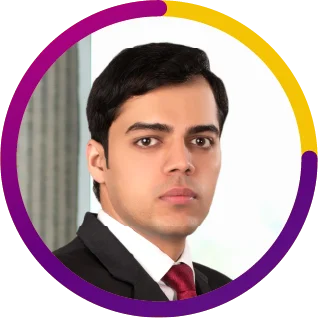
Chief Patron
DR. DEVESH KUMAR SINGH
Chairman
Noida International University
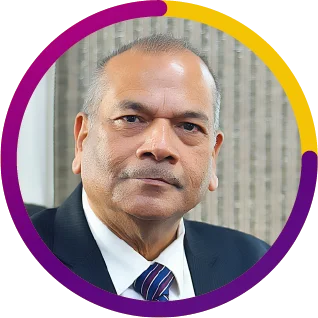
Patron
DR. VIKRAM SINGH
Chancellor
Noida International University
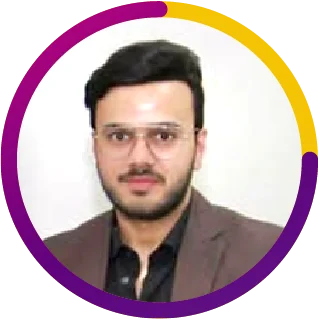
Patron
MR. HIMANSHU SINGH
Trustee
Noida International University
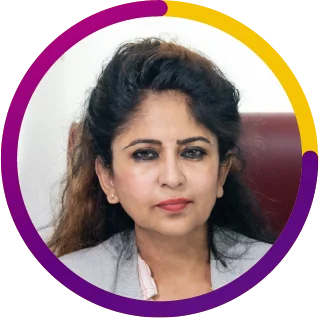
Patron
PROF. (DR.) UMA BHARDWAJ
Vice-Chancellor Noida International University
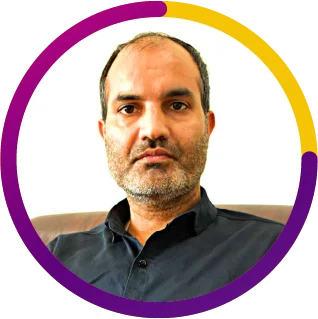
Co-Patron
PROF. (DR). TANVEER WANI
Dean - R&D
Noida International University
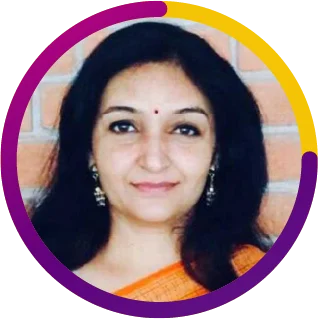
Conference Chair
PROF. (DR.) APARNA SHARMA
Dean, School of Liberal Arts Noida International University

Conference Co-Chair
PROF. (DR.) AARFA RAJPUT
Dean, School of Journalism & Mass Communication Noida International University
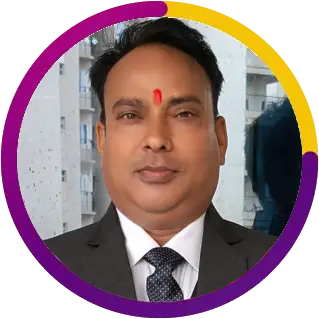
Conference Co-Chair
PROF. ( DR. ) ANIRUDDHA RAM
Associate Dean School of Law and Legal Affairs
Chief Guest

Dr (Mrs) Pankaj Mittal
Secretary General of the Association of Indian Universities (AIU)
Chief Commissioner – Guides at Bharat Scouts & Guides
Guest of Honour
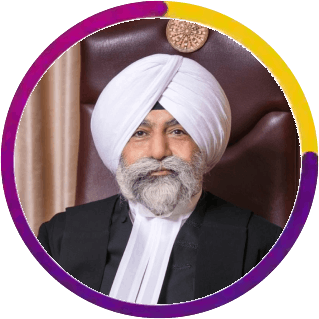
Hon’ble Mr Justice Talwant Singh
Former Judge, Delhi High Court
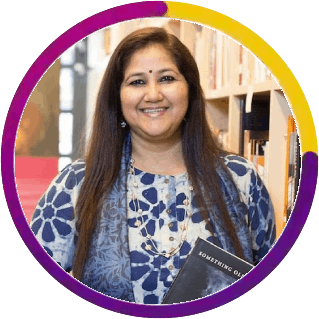
Ms. Tanuja Shankar
Director ISOMES
Former Cultural Diplomate Budapest,
Veteran Television & Film Professional,
Writer, Media educationist and Cultural Expert
India.
Keynote Speakers

Prof. (Dr.) Halina Marlewicz
Ph.D., Institute of Oriental Studies JU,
Head of Department of Languages and Cultures of India and South Asia
Mickiewicza, Kraków, Poland
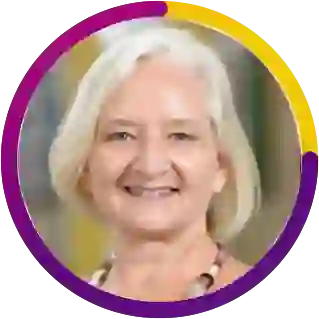
Laurie A. Baker-Malungu EdD
Educational Consultant, Curriculum Developer & Author
Adjunct Associate Professor: SED
Macao SAR, China

Prof.(Dr.) Yeliena Prokhorova
Kyiv National Economic University
Ukraine
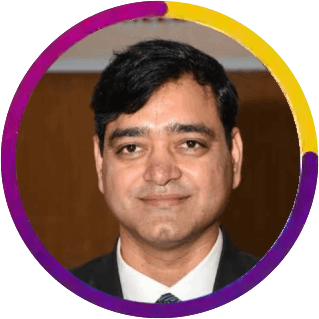
Dr. Veerendra Kumar Mishra
Indian Police Service officer (IPS)
Assistant Inspector General of Police
Police Headquarters, Bhopal, Madhya Pradesh
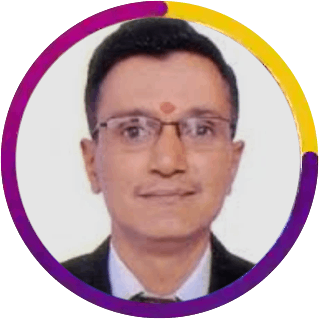
Prof.( Dr.) Bharatendu Pandey
Department of Sanskrit
University of Delhi, Delhi

Prof (Dr) Nidhi Agarwal
Professor
Faculty of Social Sciences, Arts and Humanities
Lincoln University College, Malaysia
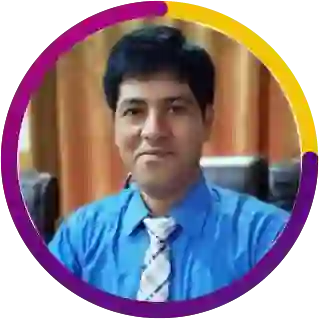
Prof. (Dr.) Raghvendra Kumar Sharma
Professor & Dean, School of Business & IT
Texila American University, Lusaka,
Zambia.
Conference Conveners
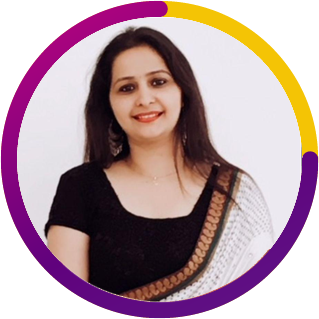
DR. MANJU KUNDU
Department of International Relations Noida International University
9599934729
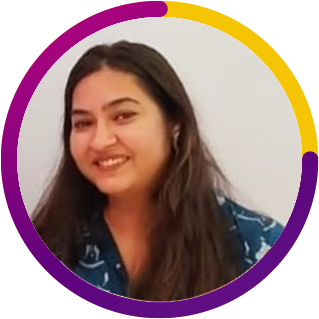
DR. SANGEETA MISHRA
Department of English Noida International University
7530804608
Conference Co-Conveners
DR. POONAM KUMARI
Department of History
DR. SOUMI BANERJEE
Department of English
DR. PUNEET YADAV
Department of Geography
DR. SHARDHA PUROHIT
School of Journalism & Mass Communication
DR. MOHD. ASIF
Department of Public Administration
Organizing Team
Secretary
DR. SUDESH SANGWAN
Department of English
Member
DR. SHRUTI NAGAR
Department of Sociology
Member
DR. VINOD KUMAR SINGH
Department of History
Member
Dr. Arijit Ghosh
Department of Geography
DR. DEVENDRA
School of Law & Legal Affairs
Member
DR. AMRITA CHANDAN
Department of English
Ethical Committee Members
The ‘ Multidisciplinary Approach to Humanities and Social Sciences’ takes ethical misconduct seriously and has established procedures to address such issues. If unethical behaviour is suspected, the editorial board will investigate the matter thoroughly. If misconduct is confirmed, appropriate actions will be taken, which may include the rejection of the manuscript, notifying the authors’ institutions, and banning the authors from future participation in the conference. All investigations and actions will be conducted in accordance with the principles of fairness, confidentiality, and transparency.
Prof. (Dr.) Aparna Sharma
Dean, School of Liberal Arts
Noida International University,
Greater Noida
Prof. (Dr.) Anil Sehrawat
Dy. Director, Amity Institute of Corporate Communication
Amity University Noida,
Utter Pradesh
Prof. (Dr.) Tapan Kumar Chandola
Dean, ICFAI University, Dehradun Uttarakhand
Dean, School of Journalism & Mass Communication
Noida International University, Greater Noida
Prof. (Dr.) Aniruddha Ram
Associate Dean, School of Law & Legal Affairs
Noida International University,
Greater Noida
Internal Editorial/Review Team
- Dr. Soumi Banerjee (Head)
- Dr. Ram Gulam (Member)
- Dr. Syed Fahar Ali (Member)
- Dr. Amrita Chandan (Member)
- Dr. Mohd. Mohnish (Member)
- Dr. Devi Prasad (Member)
- Dr. Puneet Yadav (Member)
- Dr. Yogita Sharma (Member)
- Dr. Vinod Kumar Singh (Member)
- Dr. Mohd. Asif (Member)
- Dr. Shruti Nagar (Member)
- Dr. Sudesh Sangwan (Member)
- Dr. Poonam Kumari (Member)
- Dr. Swati Srivastava (Member)
Record Maintenance & Plag Test Team
- Dr. Shardha Purohit (Head)
- Dr. Arijit Ghosh (Member)
- Dr. Mohnish (Member)
- Dr. Puneet Yadav (Member)
Registration Team
- Dr. Shruti Nagar (Head)
- Dr. Vinod Kumar Singh (Member)
- Dr. Arijit Ghosh (Member)
- Ms. Astha (Member)
- Dr. Raghunath Singh (Member)
- Dr. Shivam Budholiya (Member)
Hospitality & Management Team
- Dr. Amrita Chandan (Head)
- Dr. Shardha Purohit (Member)
- Dr. Puneet Yadav (Member)
- Dr. Nancy Puri (Member)
- Dr. Shraddesh Kumar (Member)
Organizing Team
- Dr. Sudesh Sangwan (Head)
- Dr. Amrita Chandan (Member)
- Dr. Mohd. Mohnish (Member)
- Dr. Gaurav (Member)
- Dr. Anjali Yadav (Member)
- Ms.Astha (Member)
Discipline Team
- Dr. Naima Umar (Head)
- Dr. Wakeel Ahmed (Member)
- Dr. Nancy Puri (Member)
- Dr. Shivangi Khandelwal (Member)
- Dr. Jatin Sharma (Member)
- Dr. Kshama (Member)
- Dr. Jay Prakash Vishwakarma (Member)
Certificate Team
- Dr. Shraddha Purohit (Head)
- Dr. Syed Fahar Ali (Member)
- Dr. Devendra (Member)
- Dr. Shraddesh Kumar (Member)
- Dr. Rachna Davi (Member)
- Dr. Wakeel Ahmed (Member)
Technical & Logistics Team
- Dr. Poonam Kumari (Head)
- Dr. Yogita Sharma (Member)
- Dr. Amber Pandey (Member)
- Dr. Sachin Suman (Member)
- Dr. Devi Prasad (Member)
- Dr. Arijit Ghosh (Member)
Finance & Accounts Team
- Dr. Mohd. Asif (Head)
- Dr. Puneet Yadav (Member)
- Dr. Soumi Banerjee (Member)
- Dr. Shruti Nagar (Member)
- Dr. Arijit Ghosh (Member)
Funding and Sponsorship
- Prof. (Dr.) Aniruddha Ram (Head)
- Prof. (Dr.) Quaisar Alam (Member)
- Dr. Shraddha Purohit (Member)
- Dr. Naima Umar (Member)
External Reviewers
Prof. Halina Marlewicz, Ph.D.
Institute of Oriental Studies JU, Head of Department of Languages and Cultures of India and South Asia, Al. Mickiewiczam Kraków, Poland
Professor of Geography, Department of Geography, Institute of Science, Banaras Hindu University, Varanasi-221005.
Dr Supriya Banerjee
Associate Professor, Department of International Foundation studies, Amity University in Tashkent
Prof. (Dr.) Veenus Jain
Professor, Centre of Studies in Jainism, Somaiya Vidyavihar University, Mumbai
Prof (Dr) Asha Verma
Dean- School of Law, Manav Rachna University, Haryana
HOD, Journalism and Mass Communication, Trinity Institute of Professional Studies, GGSIP University Delhi
Prof. (Dr.) Shikha Srivastava
Applied Psychology, School of Liberal Education, Galgotias University
Dr. Richa Sharma
Professor & HOD, Mangalmay Institute of Management and Technology, Greater Noida
Assistant Professor, Sharda University, Uzbekistsn
Dr. Rachna Sharma
Associate Professor, KIIT College of Education, Gurugram, Haryana.
Dr. Sanjana Sharma Marwaha
Associate Professor, Sociology, Amity Institute of Social Sciences, Amity University Uttar Pradesh
Dr. Reena Singh
Associate Professor, Amity University,Noida
Dr Prashant Arwey
Head, Department of History, Ramjas College, University of Delhi
Prof. Vishwanand Yadav
Visiting Professor, Department of Psychology
Indira Gandhi University Meerpur, Rewari
Dr. Aditya Kumar Shukla
Associate Professor, Amity School of Communication
Amity University Madhya Pradesh Gwalior
Prof. (Dr.) Arun Kumar Singh
Professor ICFAI Law School, Director IQAC
The ICFAI University Dehradun Uttarakhand
Dr. Neelam Tyagi
Senior Assistant Professor, Campus Law Centre
Faculty of Law University of Delhi
Dr. Shadab Khan.
Assistance Professor, Department of Geography,
Aditi Mahavidyalaya, Univ. Of Delhi. Bawana, Delhi
Advisory Board
Prof.(Dr.) Ravindra Kumar Sharma
Convenor UGC Committee
Ministry of. Education
Prof.(Dr.) Yeliena Prokhorova
Kyiv National Economic University,
Ukraine
Professor of Sociology
Ex Pro Vice Chancellor
C.C.S. University, Meerut (U.P.)
Dr Tahir Mahmood
Professor of Eminence & Chairman,
Amity Institute of Advanced Legal Studies,
Amity University Uttar Pradesh
Prof.(Dr.) Lalit Garg
University of Malta, Malta
Honorary lecturer at the University of Liverpool
United Kingdom (UK)
Prof. (Dr. )Abdulrahman P. Vijapur
Emeritus Professor of Political Science
University of Science and Technology, Meghalaya
Prof.(Dr.) Alok Misra
Vice Chancellor, Mewar University
Chittorgarh, Rajasthan,
India
Head of Managing Committee,
MV PG College
Haridwar, Uttarakhand
Prof. (Dr.) Ratneshwar Mishra
(Retd.)Professor & Head
Department of History
LNMU, Darbhanga
Prof.(Dr.) Madhu Kishwar
Chair & Professor
Indian Council of Social Science Research
Delhi
Dr. Raj Singh
Vice Chancellor
Bennett University UP
Dr. Devesh Sharma (Retd.)
NAS PG College Meerut
Prof.(Dr.) Maninder Thakur
Centre for Political Studies,
Jawaharlal Nehru University, New Delhi
Prof.(Dr.) Sanjay Swarnkar
Academic Secretary, Department of History,
Govt. K.R.G.P.G. (Auto) College, Gwalior (M.P.)
